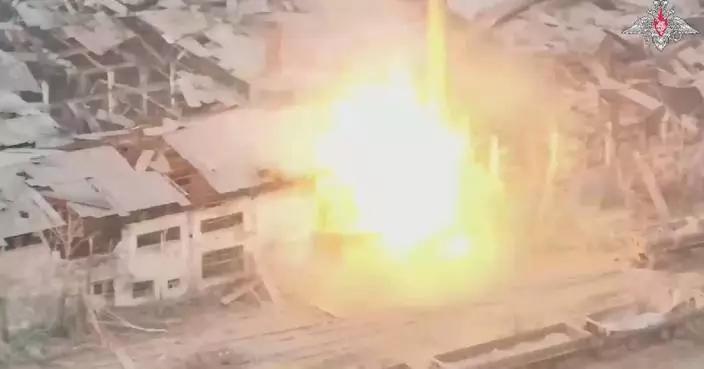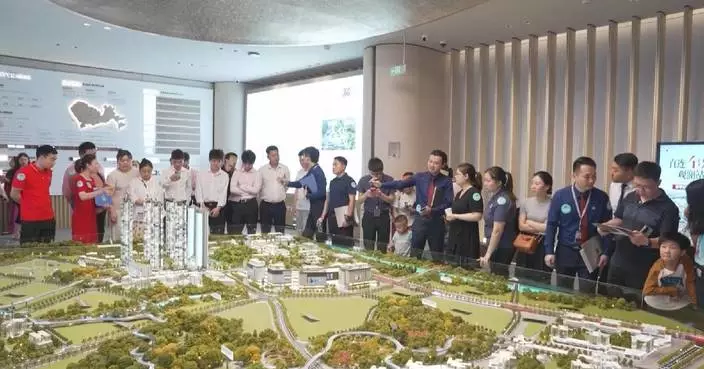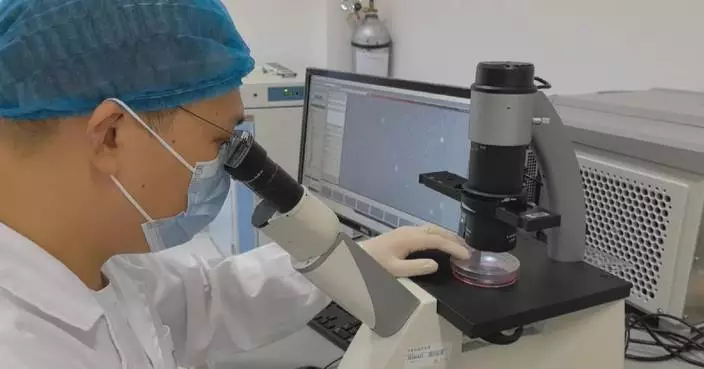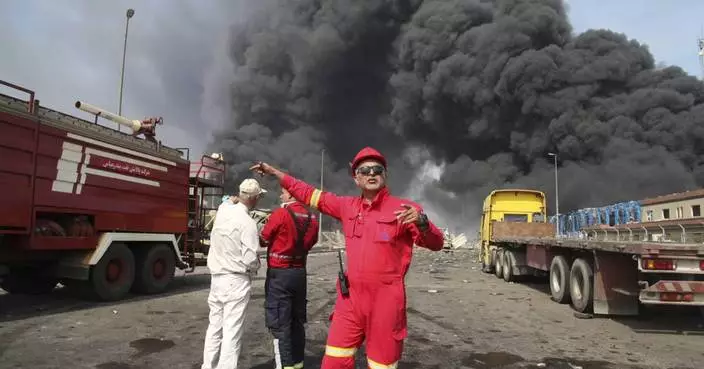The recently completed Jur River Bridge, also known as the Clement Mboro Bridge, was handed over to the South Sudanese government by the Chinese embassy on Monday.
The new bridge, located in the country's Western Bahr el-Ghazal state, has a designed length of 240 meters and a width of 14 meters, and spans a total of 1,480 meters.
This is the only bridge that connects the eastern and western parts of South Sudan. The bridge across the Jur river was built by China. The Chinese embassy in South Sudan has promised to do more to help develop South Sudan's infrastructure.
Chinese Ambassador to South Sudan Ma Qiang said at the handover ceremony in Juba, the capital of South Sudan, that the transportation industry, when properly developed, plays a fundamental and strategic role in driving economic and social development.
He said Wau, the capital of Western Bahr El Ghazal where the bridge is constructed, has the advantageous geographical location, abundant resources and unique development conditions, but its economic potential is being restrained due to the limited infrastructure.
"After the completion of the bridge, it will save time for crossing the Jur River, connect people on both sides, increase employment opportunities, and inject new vitality into the local economic and social development," Ma said.
Sarah Cleto Hassan, governor of Western Bahr el Ghazal State, said constructing roads and bridges will spur sustainable peace and contribute to the economic development of the country.
"We are witnessing a new milestone in South Sudan-China friendship and shows the close and deep relations between us. Today symbolizes development and improves prosperity. I see there will be many more things we can do together," said Hassan.
South Sudan's Minister of Roads and Bridges Simon Mijok Mijak said that the modern bridge built by China's Tianyuan Company Limited will "stand as the symbol of our true, unshakable friendship between China and South Sudan," and appealed for next level of bridges building.
"I am here appealing that we move to the next level of building bridges as you have said rightly that this bridge is part of Silk Road connecting East Africa through South Sudan to West Africa," said Simon.

China-bulit Jur River Bridge handed over to South Sudan
A deal to give the United States exclusive access to Ukraine's mineral resources has sparked contention among Ukrainian experts, who have described earlier drafts of the agreement as "unacceptable" and "colonial."
As the war between Ukraine and Russia is showing signs of winding down, another battle is quietly unfolding beneath Ukrainian soil, with competitors eying Ukraine's vast reserves of critical minerals.
The United States and Ukraine have signed an agreement to establish the U.S.-Ukraine Reconstruction Investment Fund, the U.S. Treasury Department announced on Wednesday.
For some, the minerals deal with the United States offers a lifeline for Kiev's war-torn economy. For others, it signals the quiet start of a resource takeover, raising concerns about what Ukraine may be giving away in exchange for support.
Ukraine is rich in critical resources such as graphite, lithium, and titanium. All these are vital to electric vehicles, the aerospace industry, and the high-tech supply chain.
At a graphite quarry roughly 400 km south from Kiev, capital of Ukraine, the roads give way to deep ruts and scattered debris, which means the mine site falls short of normal operation in wartime.
According to Ukraine's geological survey, the country holds 22 of the 50 strategic materials identified by the U.S. as critical.
As the global race for these resources intensifies, Washington is eager to secure reliable access. Ukraine, desperate for investment for reconstruction, has opened its doors. However, according to experts, the negotiations have been tense.
"When we had the first draft of this agreement, it was absolutely awful, absolutely unacceptable for Ukraine. It was also like a colonial agreement," said Volodymyr Landa, senior economist at the Center of Economic Strategy of Ukraine.
The country's mining sector is in dire need of foreign capital. At one of Ukraine's largest graphite deposits, infrastructure is minimal, with a few dogs, a guard, and an elderly tractor driver.
A Lviv-based mine owner said water pipes freeze over in winter, bringing operations to a halt. More importantly, the war has drained both labor and funding.
"If the Ukrainian government presents it for free, for 50 years with free rent, our resources will lose from that," said Ostap Kostiuk, CEO of Zavallivskyi Graphite, located in the Kirovohrad region.
Following a tense and reportedly humiliating visit to Washington in March, Ukrainian President Volodymyr Zelensky appears to have softened his stance on a minerals deal he once said he would never sign. The move has triggered public outcry at home.
"Now they (the U.S.) say 'give me money, no, lithium' for the guarantees. It's not fair, I think," said a local resident.
"I definitely started to respect America less. He (Trump) is not interested in Ukraine actually ending the war," another added.
This graphite deposit represents only a fraction of Ukraine's untapped potential. An estimated 30 percent of its critical minerals have already been extracted. The other 70 percent, still buried across vast swathes of the country, is what many believe Washington is ultimately eying.
"Please do everything to make this peace closer to us, closer to people, closer to Ukrainians. Because every day, every hour, every minute, it costs our Ukrainian nation one to five Ukrainian best guys' lives," said Kostiuk.
In the view of Professor Valeriy Pekar, a business scholar in Kyiv and Lviv, the Trump administration is not actually interested in securing peace for Ukraine.
"To take control of our resources, it is necessary to end the war. The American leadership declares themselves great peacemakers, but what they really do is not peacemaking. It's war mongering," he said.
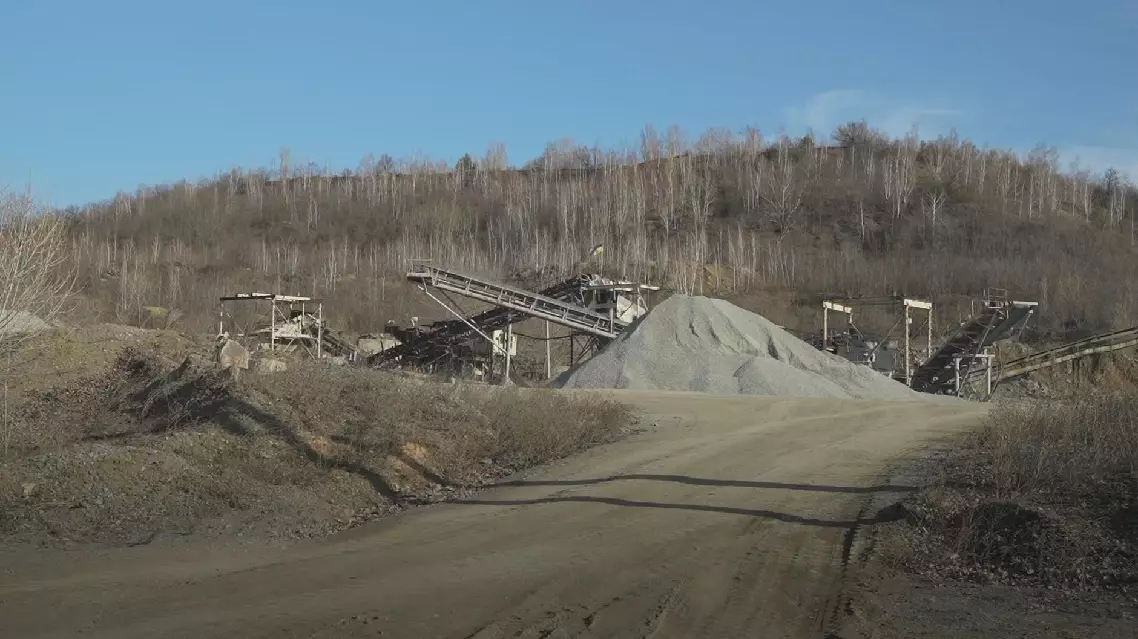
US interest in Ukraine's critical minerals draws public backlash






